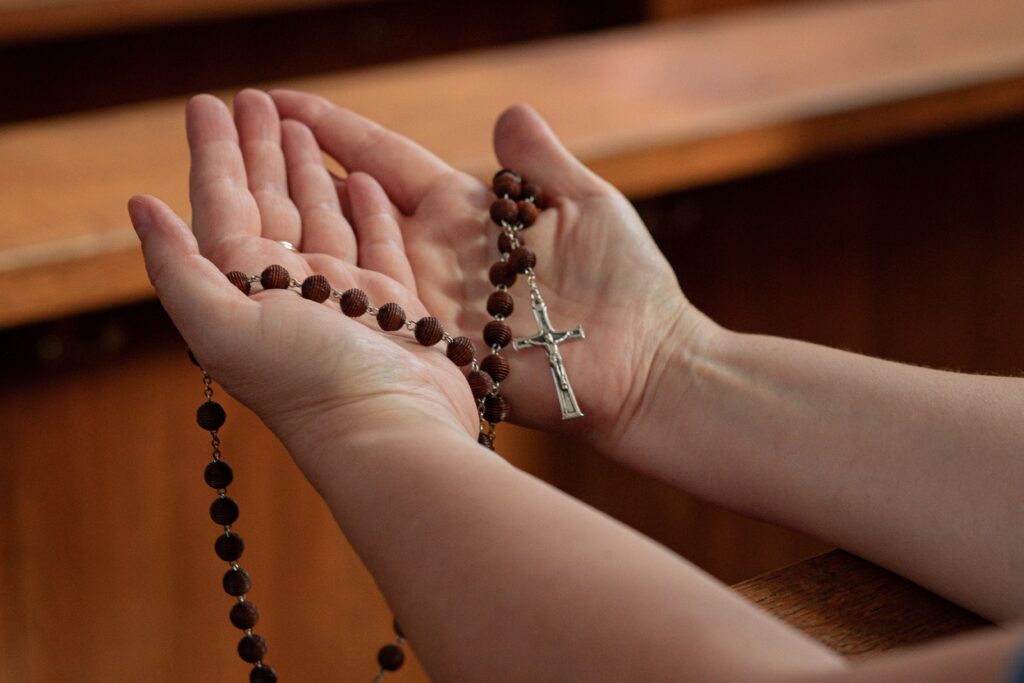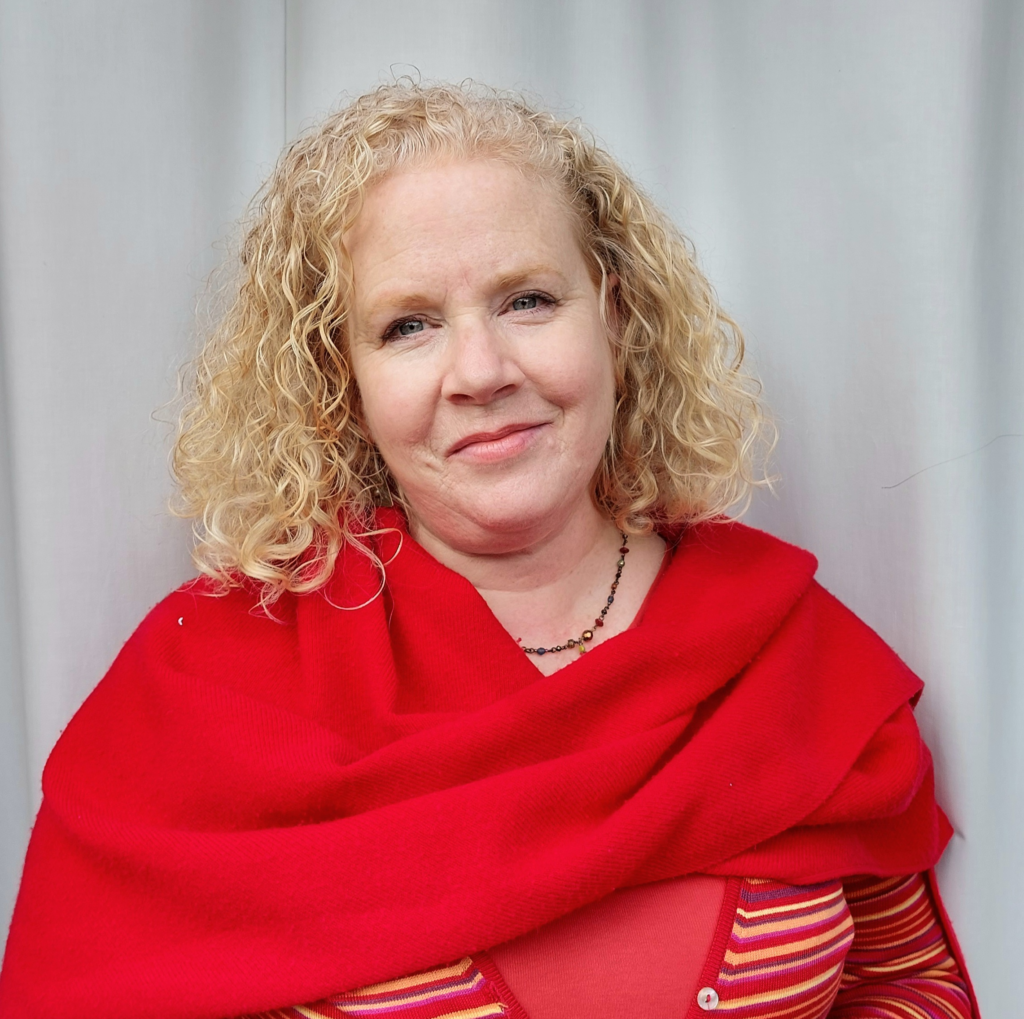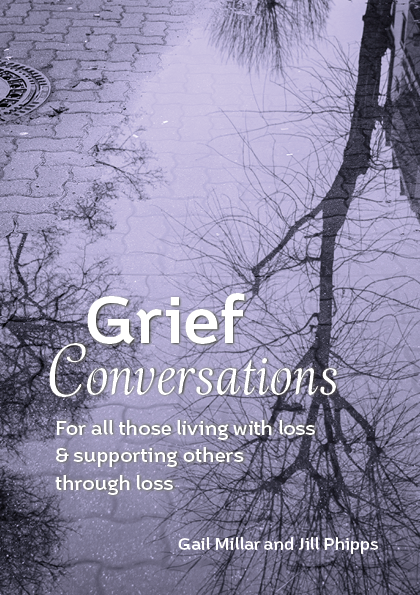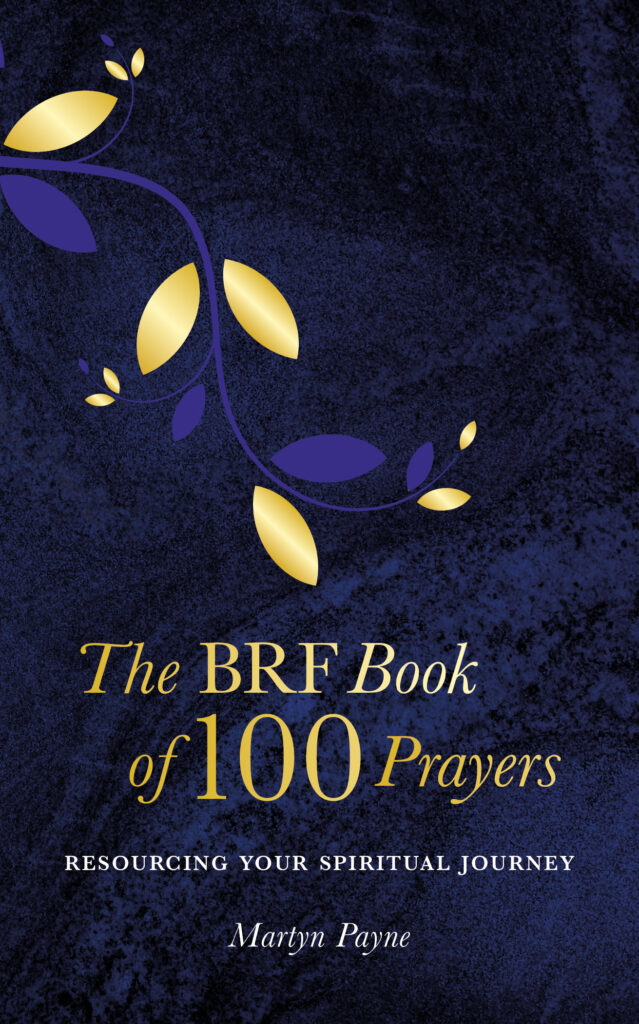In the third of our articles based on sessions from the recent Festival of Prayer, Debbie Ducille, church lead in the Anna Chaplaincy team, considers the connection between prayer, memory and our relationship with God.
14 August 2022
Prayer and memory: a multisensory experience

Debbie Ducille’s workshop was a mixture of talk and experiment. She outlined the ideas that underpin her approach to prayer and memory in her work with Anna Chaplaincy. Then she invited participants to experiment with an array of objects and materials to experience what she was describing for themselves.
Created for connection
We’re here to think about how prayer and memory interrelate and how our senses work into that as well. I’m going to focus in part on the place of prayer for those living with dementia – which is obviously of key importance in Anna Chaplaincy.
I firmly believe that we are created for connection. We are created for connection with God, with our world and with other people. How does that deep connection to God take shape? First and foremost, it is in our bodies; we are embodied people. We are people who inhabit bodies and we need to use all of ourselves in connecting with God, with our world and with other people.
As relational persons inhabiting a body, multisensory prayer experiences can enhance and develop an embodied memory, in other words ‘spiritual muscle memory’, which is a gift, particularly as we age. For those without words or those who have lost one of their senses, including those living with advanced dementia, it can be crucial.
‘There is growing evidence that our long-term memory – that which is most deeply connected to our emotions and our experiences – is actually held in the body.’
The more we do something, the stronger, more embedded and more meaningful that practice becomes. While memory is clearly connected to the brain and to cognitive function, there is growing evidence that our long-term memory – that which is most deeply connected to our emotions and our experiences – is actually held in the body. This is so important for any age group, but particularly for those in what’s sometimes known as ‘the fourth age’: those 80+, where cognitive decline is a real possibility. Memory goes beyond that cognitive decline: it is held in our bodies and that’s a great encouragement.
Your earliest memory of prayer?
Let’s start with a question: what’s your earliest memory of prayer? Just take a moment and think about that.
My own earliest memory is of some books that my mum bought for us to use every night as we prayed. I can’t remember a single word of those prayers, but I remember the pictures. I can see them now.
It’s interesting how evocative it is to talk about these early memories and to notice how they’re often linked to a particular place or person, an image or some kind of ritual, or a sensate memory: the feel of a particular fabric, a scent, the taste of a certain food, a song or piece of music.
‘I can’t remember a single word of those prayers, but I remember the pictures. I can see them now.’

An aide-memoire
As we think more about prayer and memory, I’m going to use the five vowels as an aide-memoire: ‘A’ ‘E’ ‘I’ ‘O’ ‘U’.
‘A’ is that this is true for all people. Memory – rooted in the senses – is essentially a human quality. The connection between memory, the senses and prayer is powerful whatever our age, but can become even more important in the later seasons of life. When words have gone, or one particular sense has diminished, being able to recall those sense memories can be incredibly helpful.
‘E’ is that both prayer and memory are embodied. Professor John Swinton, one of the leading figures in this field, says that long-term memory – our emotional memories – are held in the body, not cognitively. And the practice of our faith is also embodied. Prayer, worship, contemplation and fellowship engage us bodily. We inhabit and hold prayer, ritual, liturgy, postures and a rhythm or rule of life in our bodies as well as our minds. Certain rituals and words are so familiar to us that we develop a kind of spiritual muscle memory. We keep doing something and eventually, it becomes almost automatic, bypassing the cognitive.
‘I’ is for identity. Memory, personhood and identity are all very closely linked, and shelves of books are being written on these connections. Who are you when you don’t remember who you are? My dad was in the later stages of Alzheimer’s and we were once in a lift that had a big mirror on the wall. We were chatting away and I said, ‘Oh, who’s that handsome chap in the mirror?’ He didn’t recognise himself. I found that extraordinarily powerful; heart-breakingly poignant.
But while society values cognitive ability above all else, that is not the key to personhood. The Bible tells us another story. The Bible tells us that our personhood and our identity are rooted in our relationship to the living God – Father, Son and Spirit. Our identity grows out of relationship, connection and belonging, and even when we have forgotten ourselves, like my dad, we can be truly encouraged that God always remembers us.
Joanna Collicutt adapts the famous quote of Descartes from, ‘I think, therefore I am.’ to ‘God thinks, therefore I am.’ Professor John Swinton tells us, ‘Even when we forget, God will always remember us.’
‘The Bible tells us that our personhood and our identity are rooted in our relationship to the living God – Father, Son and Spirit.’
‘O’ is an offer and an option. In Anna Chaplaincy, when we talk about multisensory experience, we hope that it might help to enable someone to feel connected with God in prayer. But it’s only one approach and it might not be helpful for everyone. For example, for some people living with dementia, there can be a risk of sensory overload. So we need to think carefully. The multisensory approach offers tools which can help people to inhabit prayer in their bodies and deepen their relationship with God. But for some people, it may be a distraction, so it’s a very personal choice.
‘U’ is for up. The ‘up’ is a shorthand reminder that we want to continue to focus on God, not on ourselves and the experience we’re having; not on what our senses are telling us, but on God and our relationship with him.
I’m going to end with a quote, to hold in silence. In his wonderful book Valuing Age (SPCK, 2008), James Woodward writes: ‘We need to shift the attention from us to God. It is not what we do. It is not even what we believe which is important. It is what God does. What God does is that he remembers us. And the fact that he remembers us means that we are of immense worth. Our spiritual life does not depend on our remembering, it does not even depend on our believing, it depends on God’s love and mercy alone.’
A rich array of resources
For more books, ideas and resources, please explore:
- annachaplaincy.org.uk
- brfonline.org.uk/products/thinking-of-you-a-resource-for-the-spiritual-care-of-people-with-dementia
- methodist.org.uk/our-faith/prayer/creative-prayer/venerable–beads
- methodist.org.uk/our-faith/prayer/creative-prayer/praying-through-our-senses
- baptist.org.uk/Articles/575498/Circling_prayers_and.aspx
- gloriousopportunity.org
- methodist.org.uk/our-faith/prayer/creative-prayer/prayer-plaits
- methodist.org.uk/our-faith/prayer/creative-prayer/prayer-cairn
- Joanna Collicutt, Thinking of you: A resource for the spiritual care of people with dementia (BRF, 2017).
- John Swinton, Dementia: Living in the memories of God (Eerdmans, 2012). This is especially important as we age.
- James Woodward, Valuing Age: Pastoral ministry with older people (SPCK, 2008).

Debbie Ducille heads up Anna Chaplaincy’s strategic work with denominations and groups. She is passionate about vibrant relational life in the church, stemming from her own desire to network and connect with people and groups. She is also committed to pioneering reflective and strategic ways to think, live and act together.
Debbie and her family have lived in Birmingham for most of the last 20 years, a city she loves for its diverse and welcoming character. As well as her working roles, Debbie has long been engaged in theological studies, currently in doctoral research exploring elements of Anglican ecclesiology. In her spare time, she loves to make things, cook food from around the world and tries to garden.

Anna Chaplaincy resources include the free downloads: Grief Conversations and Easy Guides.
The aim of Grief Conversations, by Gail Millar and Jill Phipps is to enable those bereaved through the pandemic – and whose pain is still raw despite the passage of time – to feel better supported, understood and that little but less alone.
Easy Guides offer ideas and inspiration for churches in their work with older people. Drawn from the rich experience of Anna Chaplains across the UK, they provide pointers for getting started in a variety of contexts where older people’s spiritual care is a focus.

The BRF Book of 100 Prayers
Coming in August, this beautiful hardback collection of prayers by Martyn Payne is a companion volume to the BRF Book of 365 Bible Reflections.
